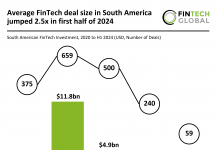New digital bank WeLab has celebrated opening 10,000 accounts within its first ten days of its launch, demonstrating how challenger banks are taking off in Asia.
Founded in 2013 as a lending platform, the virtual bank received a banking licence last year and rounded off 2019 by raising a $229m debt equity round in November. Its backers included Alibaba Hong Kong Entrepreneurs Fund, International Finance Corporation and Credit Suisse.
The money was put to building up its banking platform, which uses artificial intelligence, machine learning and big data to create its app-based service.
Of the people who have signed up within the first ten days of the launch, 60% are reportedly using two or more of WeLab’s services.
“The pandemic has created challenges for many industries,” said Adrian Tse, CEO of WeLab. “While some banks have shortened their branch banking hours, WeLab Bank continues to provide a refreshing banking experience to the Hong Kong people efficiently.
“WeLab Bank is fully digital and everything can be done simply from their phone. Customers can open an account anytime, anywhere in as fast as five minutes, immediately use the virtual debit card to earn cash rebates, and board the GoSave minibus to earn competitive interest rates.”
The news comes as Asia is enjoying a rise in digital lenders. While challenger banks have been ubiquitous in Europe and to some extent in the US, they have taken some time to get a hold in Asia. But it seems as if that is changing.
For instance, the Asia-Pacific challenger bank sector is estimated to see the launch of 100 new neobanks by 2025, according to recent research from Backbase and IDC.
And customers in the region are seemingly willing to welcome them with open arms. Earlier this year, when Singapore revealed that it would grant five businesses with new digital banking licences, its citizens seemed eager to roll out the welcome mat.
The reason for that was that 75% felt that traditional service providers had been unable to meet their demands.
Copyright © 2020 FinTech Global











